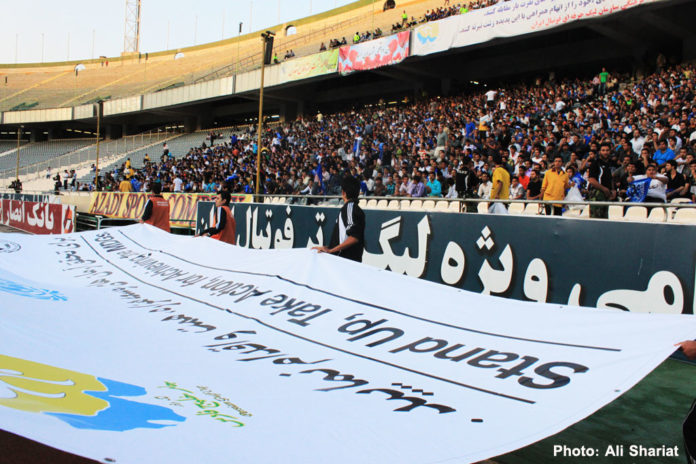A recent insurgence of political views and social commentary in the world of sport means some fans are questioning if there’s room for it in a fiercely competitive industry.
John Estafanos, a third-year student at the University of New Brunswick, is a soccer fan and roots for teams like Liverpool, Real Madrid and Barcelona. With an Egyptian background, he cheers for Egypt and African countries on the national level.
But while watching the game, he considers the political views of the teams and considers it “inevitable” that national teams are intertwined with the identity of the country they represent.
“There’s definitely that switch when going from [club teams] to the [national level]. Sometimes you just want to cheer for a team because you have a good opinion of the country and its policies,” said Estafanos.
“In general, when a certain team plays, whether they’re affiliated with a government or not, they’re still taking its name, and whether it’s a conscious thing or not, they’re also affiliated with a country’s reputation and its actions.”
When socio-political activism emerges on the field, Estafanos does not view it as an essential part of the game but rather like a “side controversy.” He sees it as a pretty big move if everyone decided to use sports like soccer as a political platform.
“I think … it may even be a little off-putting to the sport,” said Estafanos.
“It gives the sport a little less meaning as it’s kind of being weaponized in some way for political reasons. Just keep the game beautiful and stick to that.”
Amir Ayati, who is pursuing his chemistry doctorate at UNB, grew up in Iran. His first soccer focus was on Persepolis FC and Esteghlal FC, the two most popular domestic soccer organizations in Tehran. The teams fueled a huge part of Ayati’s childhood.
“A lot of my best friends were fans of the opposite team, but that was part of the fun. We just grew up debating, trash-talking, watching the games,” he said.
During the World Cup championship, which saw Iran win its match against Wales, Ayati recalls how the city took to the streets to celebrate.
But he views the team differently.
In the midst of riots, photos emerged of Iranian players laughing with the country’s president, Ebrahim Raisi. It caused many to retract their support for the team.
“That was why I didn’t want those players and that team to win,” said Ayati.
Ayati said the team may have been pressured to pose for the photos, but he does not believe that matters when a country is facing a revolution. He said the team’s next act of solidarity, where they refrained from singing the national anthem at a World Cup match, was not enough to compensate.
“Their actions ended up helping [the government],” said Ayati.
“When a revolution is happening, either you’re with it or against it. It’s about basic human rights.”
Ayati does not believe political activism would harm the beauty of soccer.
“If you’re a human, you care, and you care all the time. Why not use your platform?” said Ayati.

